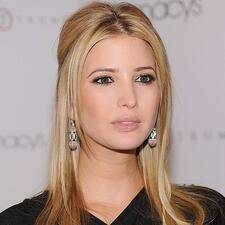Politics and Government
Manya Gordon Strunsky
Manya Gordon Strunsky was a socialist activist and a respected writer on political and social issues. Strunsky was also instrumental in bringing Jewish immigrants from czarist Russia to America and helping them to become settled.
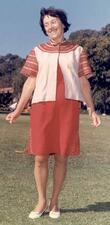
Rivka Sturman
Suburbanization in the United States
Jews migrated in large numbers to newly constructed suburbs after World War II and the end of restrictive covenants that had excluded them. During the day, suburbs were largely female spaces where married Jewish women cared for their children and private homes, while volunteering for Jewish and civic activities. Jewish daughters raised in suburbs enjoyed middle-class comforts but also experienced pressures to conform to American gentile ideals of beauty.
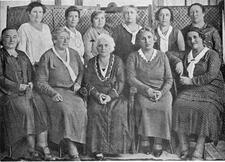
Suffrage in Palestine
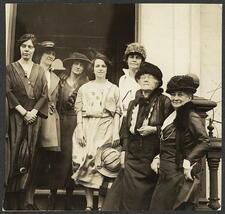
Suffrage in the United States
American Jewish women were heavily involved in the suffrage movement from its earliest days, though mostly as individuals rather than through organizations. Middle-class Jewish women believed the vote was necessary to achieve their broader reform goals, while working-class women hoped enfranchisement would improve their working conditions and economic opportunities. By the time the Nineteenth Amendment finally passed in 1919 the American Jewish community overwhelmingly supported it.
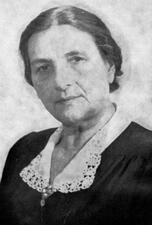
Hasya Sukenik-Feinsod
Hasya Sukenik Feinsod served as director of the Hebrew Kindergarten Teachers College. In 1919 Feinsod was appointed by the Education Committee to serve as superintendent of kindergartens in Jerusalem. She headed the Association of Kindergarten Teachers, and she was the first and only female representative on the Education Committee.
Elsie K. Sulzberger
Elsie K. Sulzberger had an important public career through her leadership in the National Council of Jewish Women and in the early twentieth-century birth control movement.
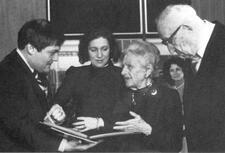
Iphigene Ochs Sulzberger
Rachel Hays Sulzberger
Rachel Hays Sulzberger maintained an active volunteer career in public service, in both Jewish and secular organizations. She is best remembered as the second president of the New York section of the National Council of Jewish Women.
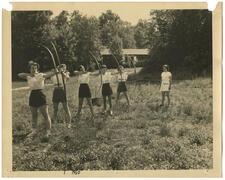
Summer Camping in the United States
The Jewish summer camp movement shaped ethnic-American identity and Jewish childhood throughout the twentieth and into the twenty-first century. A means to fight anti-Semitism by showcasing patriotism and developing the camper’s physical fitness, it was also a safe space to explore, question and craft religious traditions and rituals, novel ideas about girlhood, and the possibilities of womanhood.
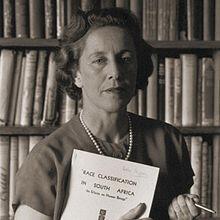
Helen Suzman
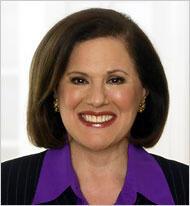
Marcy Syms
Marie Syrkin
Marie Syrkin is best known as a polemicist for the State of Israel, whose keen arguments appeared in a wide range of publications for a period of almost seventy years. Her life touched almost every significant aspect of Jewish life in America and Europe in the twentieth century.
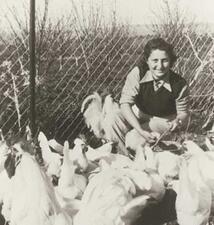
Hannah Szenes (Senesh)
Hannah Szenes has attained legendary status in the pantheon of Zionist history. After immigrating to Israel, Szenes agreed to participate in a military operation as a paratrooper. Hungarian authorities captured her and tortured her, but Szenes refused to talk. She was killed by a firing squad in 1944. Szenes mother published her daughter’s diary, poetry, and plays posthumously.
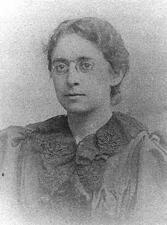
Henrietta Szold
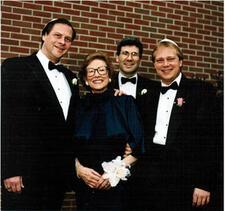
Marillyn Tallman
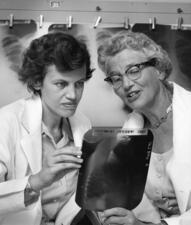
Helen Brooke Taussig
Helen Brooke Taussig was one of the most celebrated physicians of the twentieth century. Through her research and teaching. she was a leader in the development of the medical specialty of pediatric cardiology, pioneering treatment for infants with congenital cardiac defects.
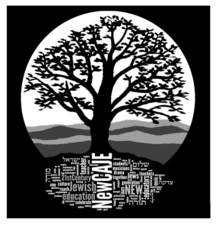
Teaching Profession in the United States
Jewish women in the United States became professional teachers to an extent unprecedently in Jewish history. Through Jewish educational organizations, Jewish schools, and public schools, female Jewish teachers have played an important role in shaping the North American teaching profession.
Hannah Thon
Hannah (Helena) Thon was a social worker, journalist and editor, a student of Israel’s ethnic communities, and one of the leading figures in the women’s voluntary social-welfare organizations during the Yishuv (pre-State) period in Israel.
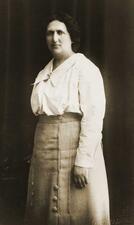
Sarah Thon
Ethel Tobach
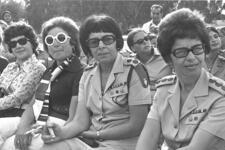
Dvora Tomer
Dvora Tomer had a career in the Israeli military for three decades, during which time she worked to expand women’s opportunities in the Israel Defense Forces to include a wider range of roles and fairer treatment.
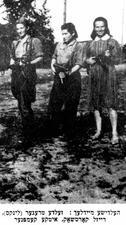
Zelda Nisanilevich Treger
Zelda Treger was born in Vilna, Lithuania, which was occupied by the Germans beginning in June 1941. Treger soon joined the United Partisan Organization (FPO) and was tasked with smuggling groups of residents and supplies out of the ghetto and labor camp. Escaping capture several times, she aided in the liberation of Vilna and ultimately settled in Tel Aviv, where she remained until her death.
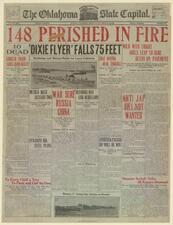
Triangle Shirtwaist Fire
